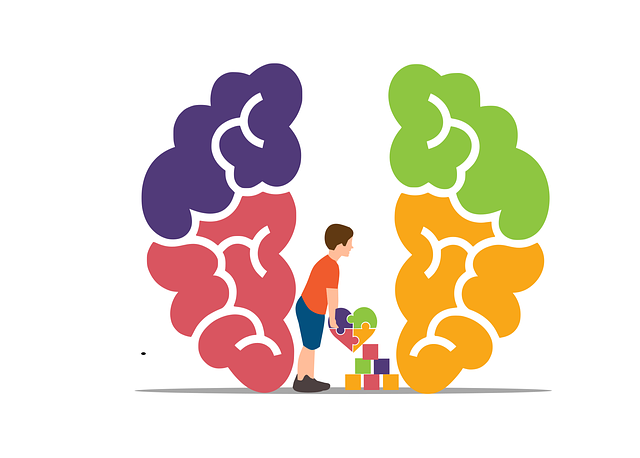Identifying risky behaviors early is key to preventing adolescent substance abuse. Crisis counseling services recognize warning signs through tailored guidance, while culturally sensitive mental healthcare ensures inclusive interventions. Self-care routines and therapeutic approaches like CBT and MI empower teens with healthier coping mechanisms. Building resilience through therapy, education, and support systems prevents abuse, fostering adaptability and positive self-worth in young individuals.
Risk reduction strategies are vital in addressing substance abuse among adolescents, a pressing issue demanding proactive solutions. This article explores comprehensive approaches to mitigate risks, focusing on early interventions, therapeutic methods, and resilience-building tactics. By delving into these key areas, we aim to provide insights for professionals and parents alike, fostering a supportive environment that prevents crisis counseling and promotes healthy teen development. Discover effective ways to identify risky behaviors, implement therapeutic strategies, and establish long-term support systems.
- Identifying Risky Behaviors and Early Interventions
- Therapeutic Approaches for Substance Abuse Prevention
- Building Resilience and Long-Term Support Systems
Identifying Risky Behaviors and Early Interventions

Identifying risky behaviors is a crucial first step in risk reduction strategies for substance abuse among adolescent teens. Early intervention plays a pivotal role in preventing escalation and fostering positive outcomes. Crisis counseling services can help recognize warning signs, such as sudden changes in behavior, academic performance, or social interactions, which may indicate underlying struggles with substance misuse. By providing a safe space for teens to open up about their experiences, counselors can offer guidance and support tailored to individual needs.
Incorporating cultural sensitivity in mental healthcare practice is essential when addressing these issues. Understanding and respecting diverse backgrounds ensures that interventions are inclusive and effective. Additionally, promoting self-care routine development for better mental health can empower teens to make healthier choices. Mental wellness coaching programs can guide adolescents in setting goals, building resilience, and adopting strategies to cope with stressors without resorting to substance abuse.
Therapeutic Approaches for Substance Abuse Prevention

Therapeutic approaches play a pivotal role in mitigating substance abuse among adolescent teens. Crisis counseling services are an initial line of defense, offering immediate support and guidance during moments of intense distress or after a substance-related incident. This short-term intervention aims to stabilize individuals and prevent further deterioration. By fostering open communication, counselors help teens express their feelings, understand the underlying triggers, and develop healthier coping mechanisms.
Longer-term strategies focus on comprehensive therapy models, such as cognitive-behavioral therapy (CBT) and motivational interviewing (MI). CBT equips teens with skills to identify and challenge negative thought patterns associated with substance abuse. MI, on the other hand, helps build motivation for change by exploring the individual’s ambivalence and enhancing their sense of self-efficacy. Additionally, empathy-building strategies within therapy sessions create a supportive environment, encouraging adolescents to share their experiences without fear of judgment, thereby fostering trust and promoting open dialogue. These therapeutic approaches, combined with burnout prevention techniques and anxiety relief strategies, can effectively empower teens to overcome substance abuse challenges.
Building Resilience and Long-Term Support Systems

Building resilience is a key strategy in mitigating substance abuse among adolescents and teens. It involves equipping individuals with the mental fortitude to navigate challenging situations and resist the allure of drug use. Through therapy, crisis counseling, and robust mental health education programs, young people can learn coping mechanisms, enhance their self-esteem, and develop a positive sense of self. These interventions are designed to foster adaptability, enabling teens to manage stress, anxiety, or boredom without resorting to substance abuse as a crutch.
Long-term support systems play a pivotal role in risk reduction. This includes connecting adolescents with supportive peers, mentors, and community resources. Mental health professionals can facilitate this by incorporating self-esteem improvement activities into therapy sessions and providing guidance on risk management planning. By building these networks, individuals have access to ongoing encouragement and accountability, which are essential for maintaining sobriety and overall mental well-being in the long term.
In addressing substance abuse, a multi-faceted approach is essential. By identifying risky behaviors early through crisis counseling and implementing therapeutic strategies tailored to adolescent teens, we can foster resilience and build long-term support systems. These interventions not only prevent the escalation of addiction but also promote holistic well-being. Therapeutic approaches, combined with robust support networks, are game changers in reducing substance abuse risks and ensuring a brighter future for our youth.














